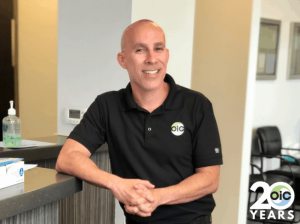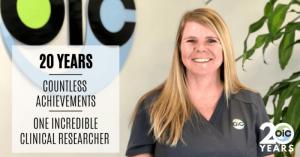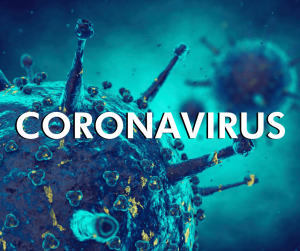Top 5 Myths About Safe Sex
Myth #1: You Can Tell if Your Potential Partner Has an STD
This is one of the biggest, and most dangerous myths. Unfortunately, the most common symptom of STDs is no symptoms at all. Your partner may feel fine and have no apparent signs like bumps or warts, and still pass an infection on to you. This becomes an issue when left untreated. Some STDs can turn into dangerous infections and even lead to permanent damage. Anyone who is sexually active should be should be tested between sexual partners in order to get treatment if needed.
Myth #2 An STD Could Never Happen to Me
STDs do not discriminate and the the truth is, 1 in 2 people will contract an STI by the time they turn 25. Some of these may be curable, and some may not. According to the CDC, 20 million people in the U.S. contract an STI every year. To put it simply, the odds are not in your favor, so it’s important to protect yourself and get tested regularly.
Myth #3 You Can Catch An STD From a Toilet Seat
STDs cannot survive outside of the body for long periods of time. The cold, hard surface of a toilet seat is no place for bacteria to survive. Also, STDs are not present in urine, which is sterile. While it’s safe to say contracting an STD from a public restroom is highly unlikely, your main concern should be of skin-to-skin contact with potentially infected people.
Myth #4 Condoms & The Pill Prevent STDs
Condoms are designed to prevent pregnancy, not protect against STDs. In fact, many condoms contain spermicide (sperm-killer) even though the Center for Disease Control (CDC) warned over a decade ago that spermicide actually increases the risk of infection for HIV. Many STDs, like herpes or genital warts are on the skin and therefore any contact will put you at risk. The birth control pill is designed to prevent an egg from fertilizing and in no way can it prevent disease.
Myth #5 Once You’ve Been Treated For An STD, You Can’t Get it Again
Another dangerously untrue myth about STDs. While several STDs can be treated with antibiotics, you can contract the disease again if your partner is not also treated or if you switch partners. It is important to get tested regularly, especially between partners or after unprotected sex.
If you are concerned about your sexual health, give us a call at 407.647.3960 or request an appointment now.
More Articles
Dr. DeJesus Recognized by Orlando Magazine
For the 5th consecutive year, Dr. DeJesus has been recognized by his peers in Orlando Magazine for his work as medical director at Orlando Immunology Center. Dr. DeJesus is a graduate from the University of Puerto Rico, School of Medicine. He completed his Internal Medicine training and Infectious Disease fellowship at the Medical College of…
Read MoreJoin OIC at the 2015 AIDS Walk Orlando
Orlando Immunology Center is pleased to announce that we will again be sponsoring a team at this year’s 2015 AIDS Walk Orlando. If you are interested in joining our team or donating to this worthwhile cause, please let us know. Saturday, March 28, 2015 In Florida, 15% of all new HIV infections reported among females…
Read MoreOIC Wins Wave Award for Favorite Local Healthcare Professional
The Orlando Immunology Center (OIC) announced today they have received the Central Florida/Orlando 2015 Watermark Awards for Variety and Excellence (WAVE) Award for favorite local healthcare professional. “We see this as a huge honor and will continue to do everything in our power to help patients from all walks of life be healthy, happy and…
Read MoreBest of Luck on Your New Adventure
Best of Luck, Love Your Family We’re a family. And just like every family, we go through triumph and tragedy together – sometimes both in the same day. Today is one of those days as we wish someone we love best of luck on their new adventure. Omar Marquez, LPN, CCRC, one of our Clinical Research Coordinators,…
Read MoreWendy Reflects on Her 20 Amazing Research Years at OIC
“Incredible progress” – Wendy reflects on how much has changed in her 20 years of amazing research at OIC but adds “I’m staying until we find a cure for HIV.” Every field sees change over time, but not as much as the field of HIV. Twenty years ago there were few medications with many side effects.…
Read MoreEverything You Need To Know for Free Leaders of Color Training
Are you a person of color living with HIV and want to make a difference? Do you want to be a part of ending HIV in Orlando? Are ready to serve as a leader? Then this free leaders of color training is for you! Where: Heart of Florida United Way, 1940 Traylor Blvd., Orlando, FL 32804 When: July…
Read MoreMassive 500 Percent Increase in Prep Use; New Research
There’s been a massive 500 percent increase in PrEP. But is that enough to end HIV? New research shows a massive 500 percent increase in PrEP use to prevent HIV. During 2014 to 2017, several key aspects of HIV prevention dramatically increased. Which is great news! But these improvements were not across all groups. Moreover, only about one third…
Read MoreWhy Preventive Medical Care Matters to You
We only have one life! So live your happiest, healthiest life through prevention! What is preventive medical care? Preventive medical care is any medical service that will help prevent an emergency or chronic condition. “I’m active and feel great – I don’t need a doctor!” That’s the entire purpose! To keep you that way! It promotes an…
Read MoreHow to Easily Get Medically Prepared for a Hurricane
Getting medically prepared for a hurricane is easier than you think. But it could be even more important than your typical hurricane prep routine. Hurricanes are erratic, powerful and destructive forces of nature. In addition, they can rapidly grow stronger. Or even decrease in strength but stall bringing wind and rain for extended periods of…
Read MoreOIC COVID-19 Response
During this most difficult time, we at OIC strive to continue to take the best care of you and all the health needs of our patients. Due to the severity of the situation involving the Coronavirus (COVID-19), we have had to implement many (temporary) changes in the best interest and the safety of both our…
Read MoreFrom SOCIAL to PHYSICAL Distance
SARS-CoV-2 (SARS-2), the virus that causes COVID-19, spreads from person to person through respiratory droplets produced from an infected person, even if that person does not know he/she is already infected. Most transmissions occur during very close contact with an infected person or when an infected person coughs or sneezes around you. A six-feet parameter…
Read MoreCOVID-19 Basic Immune Response
Just for clarification: SARS-2 is the virus that causes COVID-19. The current COVID-19 PCR test measures viral RNA. It does not measure our immune response to the virus. Viral RNA is only found in blood with active viral infection (or for a short period of time after recovery). In fact, in theory, we should get…
Read MoreInterim Guidance for COVID-19 and Persons with HIV – Updated: March 20, 2020
This interim guidance reviews special considerations for persons with HIV and their health care providers in the United States regarding COVID-19. Information and data on COVID-19 are rapidly evolving. This guidance includes general information to consider. Clinicians should refer to updated sources for more specific recommendations regarding COVID-19. Guidance for all Persons with HIV In…
Read More











